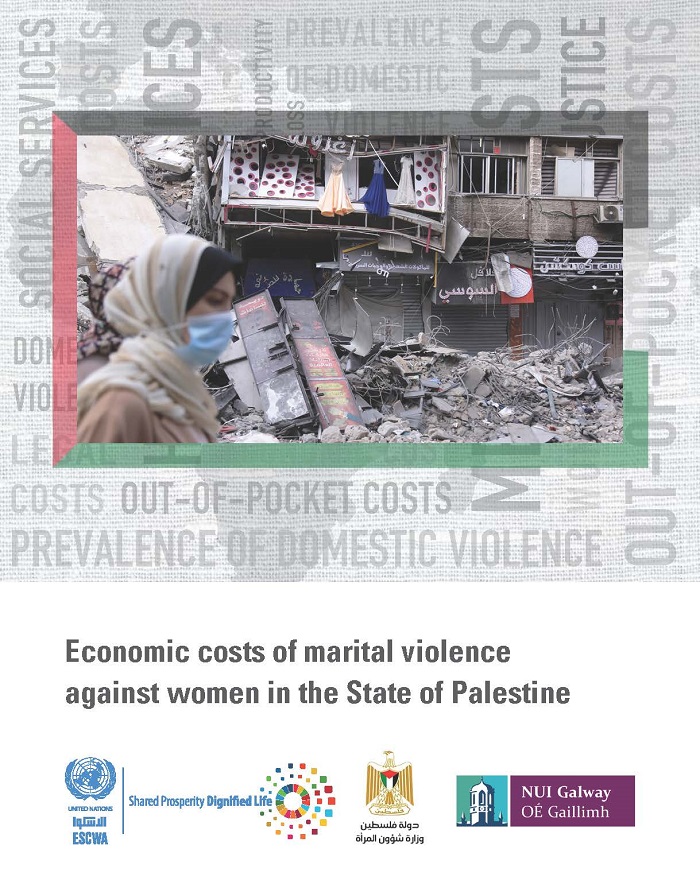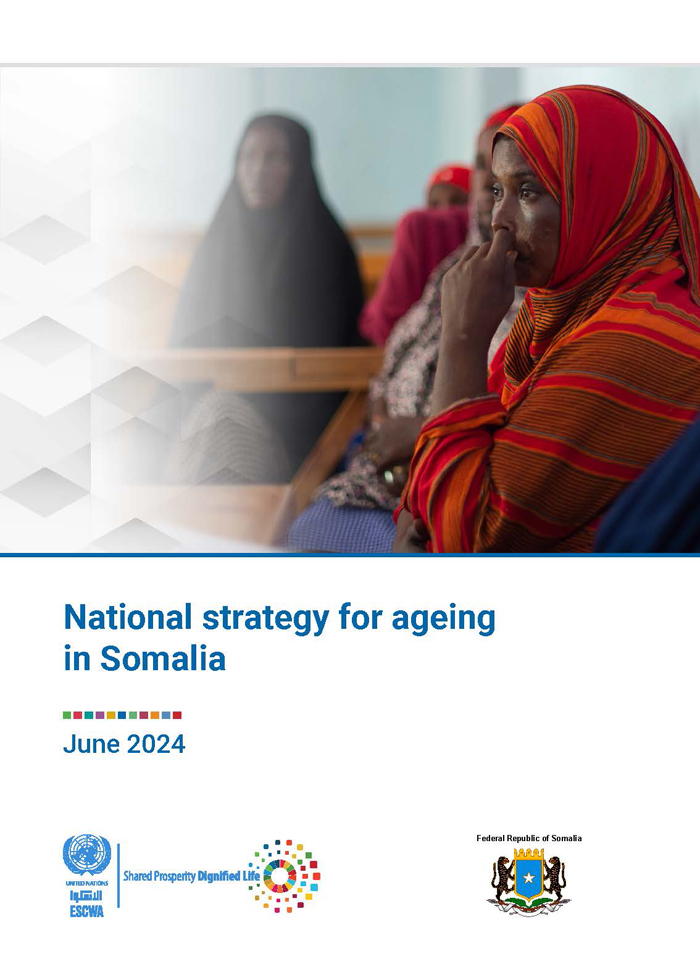
ESCWA Publication: E/ESCWA/CL2.GPID/2020/TP.30
Country: State of Palestine
Publication Type: Reports & studies
Cluster: Gender Justice, Population and Inclusive Development
Focus Area: Gender equality, Inclusive development, Population dynamics & migration
Initiatives: Women’s rights and gender mainstreaming, Women’s economic empowerment, Preventing Violence Against Women and Girls
SDGs: Goal 5: Gender Equality
Keywords: Violence, Women, Women's rights, Economic aspects, Gender equality, Gender-based violence, Political aspects, Domestic violence, Economic policy, Social policy, Household expenditures, Unpaid work, Girls, Wage policy, Surveys, Laws and regulations
Economic costs of marital violence against women in the State of Palestine
March 2022
The present study highlights that marital violence has a significant impact on household expenditure, unpaid household production and care work, absenteeism and presenteeism of women and men, and wage employment of women in the State of Palestine. It also points to the impact of marital violence on economic activity in terms of loss through absenteeism and presenteeism. Violence has significant impacts on women’s productivity at the workplace, potentially seriously affecting their employment stability, earnings and future occupational mobility, all factors that contribute to the continued gender wage gap in the State of Palestine.
Perhaps the study’s most important finding is in establishing female’s low wage employment due to marital violence and the effect on a woman’s decision-making about the nature of their own wage employment. The key recommendations of the study include, among others, analyzing the impact of marital violence in economic and social policies, and understanding the strong links between violence against women and girls, poverty and economic growth to effectively address such violence and achieve the Sustainable Development Goals.
Related content
Gender equality
, Inclusive development
, Population dynamics & migration
,
The present study highlights that marital violence has a significant impact on household expenditure, unpaid household production and care work, absenteeism and presenteeism of women and men, and wage employment of women in the State of Palestine. It also points to the impact of marital violence on economic activity in terms of loss through absenteeism and presenteeism. Violence has significant impacts on women’s productivity at the workplace, potentially seriously affecting their employment stability, earnings and future occupational mobility, all factors that contribute to the continued gender wage gap in the State of Palestine.
Perhaps the study’s most important finding is in establishing female’s low wage employment due to marital violence and the effect on a woman’s decision-making about the nature of their own wage employment. The key recommendations of the study include, among others, analyzing the impact of marital violence in economic and social policies, and understanding the strong links between violence against women and girls, poverty and economic growth to effectively address such violence and achieve the Sustainable Development Goals.



